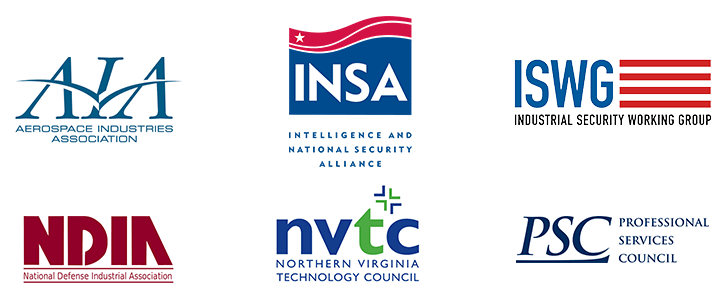The security clearance backlog is a national security risk—and the House and Senate Armed Services Committees are hearing about it. Earlier this week, six federal government trade groups wrote a letter to both committees urging them to include reforms in the FY 2019 defense budget.
Aerospace Industries Association (AIA), Intelligence and National Security Alliance (INSA), Industrial Security Working Group (ISWG), National Defense Industrial Association (NDIA), Northern Virginia Technology Council (NVTC), and Professional Services Council (PSC) all signed the letter. It begins:
“As representatives of the industries supporting our national security, we write to urge you to include critical reforms to the security clearance process in the final conference report of the Fiscal Year 2019 National Defense Authorization Act (NDAA). The backlog of nearly 750,000 cases in process and the unacceptably long wait times for a security clearance are pressing matters for industry, but more importantly, they undermine the national security missions our members support”
There’s no “Magic Wand” fix to Security Clearance Delays
The security clearance process is in its worst state in history. With a massive backlog and many high-profile breaches to the system (Bradley Manning, Aaron Alexis), the system is in need of an overhaul. Earlier this year, ClearanceJobs released a report on the current state of the security clearance process and how we arrived here. As one would expect, the problems are complex. As experts in their industry, the associations who wrote this week’s letter have no illusions that the problem has one solution—or that it can be solved overnight.
The industry trade letter acknowledges there are no simple solutions:
“Security clearance processes need to be better, faster and more secure. While there is no one action that will immediately reduce the backlog while maintaining the integrity of the process, there are concrete actions that Congress can take that will begin to address deficiencies and risks, modernize processes and procedures, reduce the backlog and speed up wait times, and carry out effective oversight of initiatives at federal agencies, while also taking steps to reduce the likelihood of maintaining an unacceptable backlog in the future.”
Instead, they point to provisions made in the Senate version of the 2019 NDAA.
- Section 934 which would potentially allow for the expedited processing of securities for mission-critical positions—with the goal of issuing a secret clearance in 15 days and a top secret clearance in 45 days.
- Section 935 Would establish a program to share information between and among Federal Government agencies and industry partners regarding individuals applying for and serving in positions of trust.
- Section 936 Would require researching the feasibility and advisability of implementing a clearance “in person” concept, which would allow a person to maintain clearance eligibility even after a person has left the position that initially required it.
You can read the whole text of the letter to the Armed Services Committees here.
This is one of at least two letters the committees have received in the last few days. Just last week, a group of bipartisan senators wrote to urge the continued ban of Chinese phone makers ZTE and Huawei. This is in response to fears of Chinese cyber espionage. Sen. Mark Warner, Vice Chair of the Senate Select Committee on Intelligence, has emphasized how security clearance delays leave the U.S. at greater risk to foreign cyber aggression.




